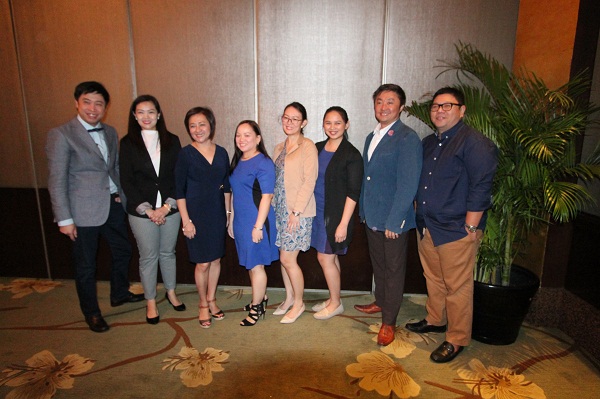MARCH is colorectal cancer awareness month, which is very timely, considering the Philippines now has the fastest increase in mortality rate for colon cancer incidences in the world, in both male and female.
This was recently revealed by gastroenterology experts from the Philippine Society of Gastroenterology (PSG), to raise awareness among Filipinos about colon cancer, urging them to get screened for the said disease.
The alarming finding is one of the results of the study entitled Global Colon Cancer: Incidence and Mortality undertaken last year and recently published in Gut, an international gastroenterology journal. The data also shows that it’s not improving either

In the Philippines, colon cancer is the fifth most common type of cancer for both sexes, after breast, lung, liver, and cervix. It is the fourth leading cause of death overall. According to the most recent statistics of World Health Organization’s (WHO) foremost cancer research and statistics project, GLOBOCAN, there were 4,901 deaths of the 8,553 incidences of colorectal cancer in Philippines in 2012, which means that more than half of those diagnosed have died from the disease.
Worldwide, colorectal cancer accounts for about 8% of cancer-related deaths, with 774,000 deaths occurring in 2015, according to WHO. The estimated number of patients that will be affected by colon cancer is 2.2 million with 1.1 million deaths annually by 2030.
Westmont Pharmaceuticals, a division of Unilab, partners with PSG, in building consciousness for colon cancer, its symptoms, diagnosis and treatments available for Filipinos. But most Filipinos do not hold colorectal cancer in the same page as other types of cancer like lung, bone or skin.

“Our trust rests on information dissemination. By doing such, we can actually lessen or curtail the rise of patients developing colorectal cancer and over the next few years, we hope that we will actually see this effort, we will actually see a drop in the prevalence of cancer,” said Dy, who is the President of the Philippine Society of Gastroenterology (PSG).
Colorectal cancer has both modifiable and non-modifiable risks factors that can be controlled or uncontrolled by the patient. Dr. Judith Gapasin-Tongco, first vice president of the PSG, said that family history, diet and age have a role to play in the propensity of acquiring the disease.
“Now there are some people who are at risk of developing colon cancer—those who are 50 years old and above, has a family history of the disease, smokers, alcohol beverage drinkers, obese, and those who have a diet in processed meats, high in fat and very low in fiber. Lastly, those with inherited genetic mutations,” said Gapasin-Tongco.
Colon cancer, like breast cancer, is highly preventable for as long as the patient involves himself as much as possible in its prevention by ensuring a healthy lifestyle, and regularly going for medical check-ups, even before turning 50.Apart from this, people who have a high risk of developing the disease must always be on the lookout for lifestyle changes like changes in stool.
According to Dy, the recommended age for screening for colorectal cancer is 50 this is the age when the appearance of polyps increases.
Dy explained that the when the polyps have become a full-blown cancer, the common treatments are surgery, chemotherapy, and radiotherapy, modalities which are also used to treat other forms of cancer. But preventing colorectal cancer is the best strategy and best achieved through colonoscopy where a tube with a camera is inserted into the digestion tract to look for abnormal tissue or tumors. These small growths can be removed without the need for surgery. This may be the reason why in some countries, at least in the United States where screening is advocated, the incidence of colorectal cancer is starting to drop.
“Colon cancer doesn’t begin as cancer immediately; it starts with pre-malignant precursors called polyps. If left attended, these polyps grow over time, eventually becoming cancer. For young people, the risk is low, but they are not immune to it,” said Dy.
This colorectal cancer awareness month, the challenge now is to get people to take their gastrointestinal health seriously and to create a campaign which would inform and educate people about colorectal cancer as not another type of cancer.
Filipinos, especially the younger generations, are less concerned about their diet and their lifestyle, and this is reflected on a small number of Filipinos actually dedicating time going for yearly medical check-ups and follow-ups, this is in addition to the fear of the procedures of colonoscopy itself.
“Most people tend to be reactive they will only act when they feel that there is a change in how they feel. The problem is, early stages of colorectal cancer is symptom free, and as such, the individual must be proactive in taking steps to catch colorectal cancer before becoming full-blown and too difficult to cure. More people should be aware about it, and more people should know how lifestyle affects it,” Dy said.
As more Filipinos incline towards a more Western lifestyle and diet, colorectal cancer has become a real concern, it as risky and damaging as other types of cancer. It is preventable, if proper screening test are performed for at-risk individuals.

